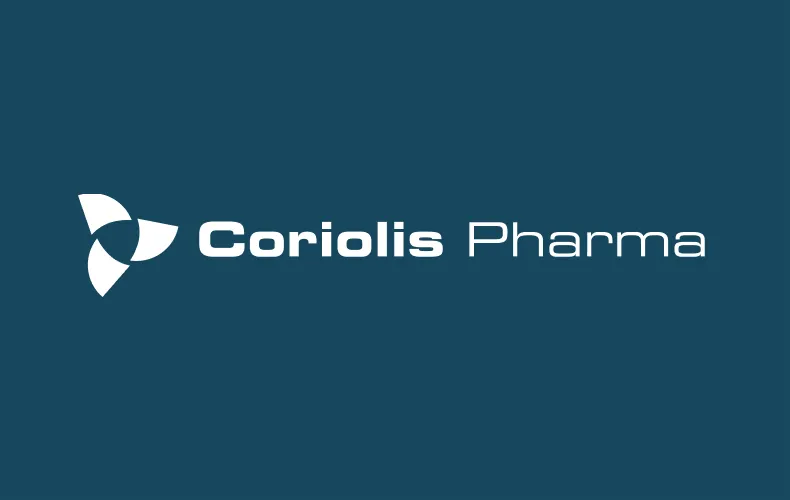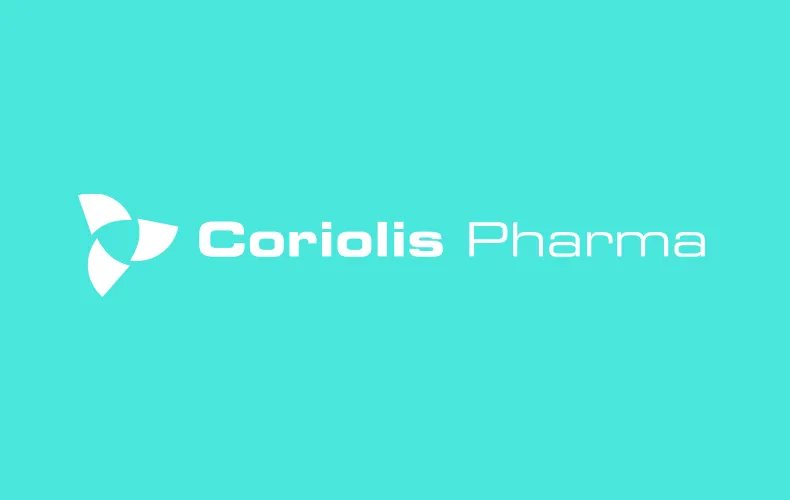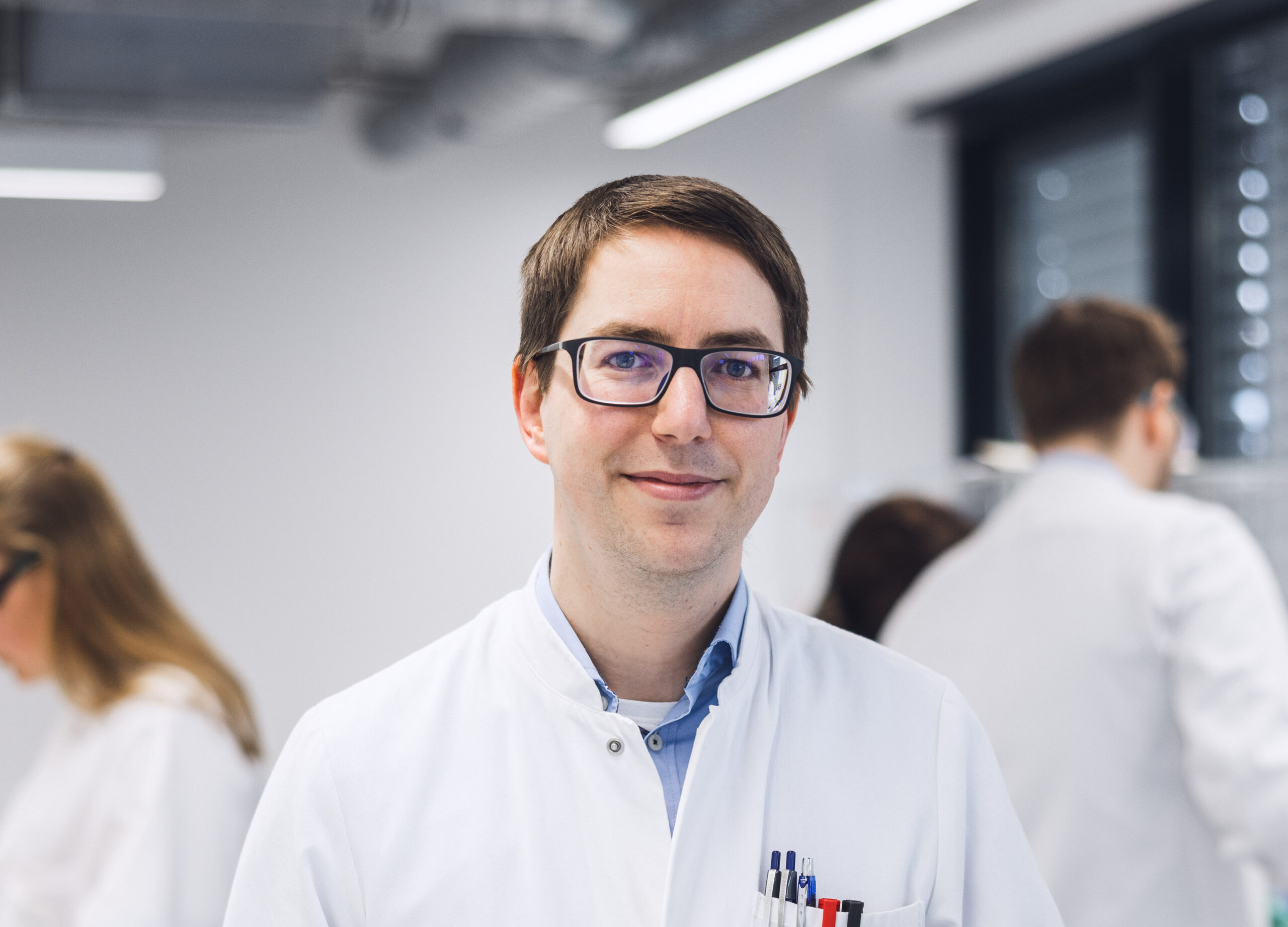Gene & Cell Therapy
Gene and cell therapies fall into an exciting, often groundbreaking class of therapeutics: advanced therapy medicinal products (ATMPs). Coriolis Pharma leverages several years of ATMP program expertise to support gene and cell therapy products, analytical and process development. Our certified ATMP development facility can handle cell cultures and viral vectors up to biosafety level 2.
We are experienced in supporting a wide range of ATMPs, including viral and nonviral vector–derived therapies, in vivo and ex vivo gene therapy products, and autologous, allogeneic and xenogeneic cell therapies.
Gene and Cell Therapy Services
Coriolis Pharma’s deep expertise in gene, cell and other ATMP development equips us to support the entire therapeutic product lifecycle.
Specialized Gene and Cell Therapy Product Services and Capabilities
Coriolis science-driven solutions are based on our deep understanding of the challenges of developing complex ATMPs, with a focus on gene and cell therapies. Our expert scientists will devise dedicated study designs tailored to the needs of your product and development phase.

Characterization of Nonviral Vectors
Nonviral vectors are primarily nanoparticulate systems made of lipids, polymers or other materials crucial for delivering genetic payloads. Coriolis excels in analyzing these vectors, with or without separating the payload. Our gene therapy analytical development tools cover six orders of magnitude, from low nanometers to visible sizes, ensuring precise measurement of free nucleotides and (sub)visible particles. Besides particle characterization tools, we can offer the required analytical portfolio to assess stability.

Virus Titration and Infectivity Assays
Our scientists develop and use tailored TCID50 and plaque-forming assays to obtain infectious titers and qPCR to determine viral genome copies. Additionally, we offer a wide range of particle characterization techniques to quantify virus particles and obtain physical titers.

Assessing and Avoiding Activity Loss
Viral and nonviral vectors can lose activity over time. Proper formulation, storage and handling are essential to maintaining the vector’s stability. Our expert scientists develop robust preparations to preserve activity. We consider liquid, frozen-liquid and lyophilized forms and assess stability under various conditions, ensuring your gene therapy product remains safe and effective until application.

Developing Viral Vector Drug Products
Viral vectors—such as adenovirus (AdV), lentivirus, adeno-associated virus (AAV), vesicular stomatitis virus (VSV), herpes simplex virus (HSV), poliovirus, reovirus, parvovirus and measles virus—are commonly used in gene therapy. An optimal viral vector should be safe with low toxicity, highly infective and often cell-type specific. Each type requires a tailored development strategy. Our expert scientists create robust viral vector formulations that maintain infectivity over their shelf life.

Cell Viability and Size Distribution Analysis
Coriolis conducts tailored stress studies to assess critical product parameters for cell therapy manufacturing process development and cryopreservation studies. These include cell viability, size distribution, cell debris, morphologically altered cells and particulate impurities.
Gene and Cell Therapy Product Resources

Publications
Applicability of vaporized peroxide for contamination control of lyophilized biohazards
June 6, 2025

News
April 15, 2025

News
April 9, 2025

Publications
Reducing dimethyl sulfoxide content in Jurkat cell formulations suitable for cryopreservation
April 7, 2025
Comprehensive Biotherapeutic Expertise
Our deep-rooted academic background, drug development and commercialization expertise keep us at the cutting edge of formulation science and analytical method development. This expertise enables us to support a wide range of modalities.
Talk to Our Experts or Request a Quote
Our expert team is ready to answer your questions and guide you to the services best suited to your program’s modality, stage and challenge. If your needs are well-defined, we’ll begin the quotation process.

Gene and Cell Therapy FAQs
-
Gene therapy involves delivering genetic material into cells to achieve a therapeutic effect or correct a genetic defect. It is a type of advanced therapy medicinal product (ATMP) that has gained significant attention for its potential to treat and cure a variety of genetic disorders. Gene therapy products typically consist of DNA or RNA and a delivery vector, which can be virus-based or nonviral. This innovative approach holds promise for transforming the treatment of many serious diseases.
-
Viral vectors, such as AAVs, lentiviruses and retroviruses, are commonly used in gene therapy due to their high infectivity and ability to target specific cells. Nonviral vectors, such as polymeric or lipid nanoparticles, generally exhibit lower immunogenicity and are easier to produce at large scale. Each type has advantages and disadvantages; the choice depends on the specific application and desired outcomes.
-
Critical considerations in the analytical development process for gene therapy include ensuring the accuracy, reliability and reproducibility of analytical methods to characterize the gene therapy product. This involves meticulous vector characterization to determine the identity, purity, potency and safety of the vectors used to deliver the therapeutic gene.
Additionally, it is crucial to assess genomic integrity, test stability and correct the incorporation of the inserted gene within the host genome or episome. Developing robust assays to measure biological activity ensures the product’s potency, while comprehensive safety profiling identifies potential adverse effects, including immunogenicity and toxicity. Advanced quantitative techniques like qPCR are employed to accurately measure gene copy number.
Ensuring regulatory compliance with guidelines from agencies such as the FDA and EMA is essential, along with continuous manufacturing process optimization to enhance product consistency and quality. These considerations are vital for developing and approving safe, effective and reliable gene therapy products.
-
Coriolis supports the development of various cell therapies, including differentiated stem cells, immune cells such as CAR-T cells and somatic cells. These therapies target a range of diseases, such as cancer, autoimmune disorders and degenerative conditions.
-
Coriolis develops particle characterization methods for the quality control of cell-based medicinal products. Our formulation scientists ensure robust frozen-liquid and lyophilized cell preparations suitable for short- and long-term storage. Additionally, we assess product stability against mechanical stress, such as freeze-thaw cycles, and work on topics around cryopreservation.